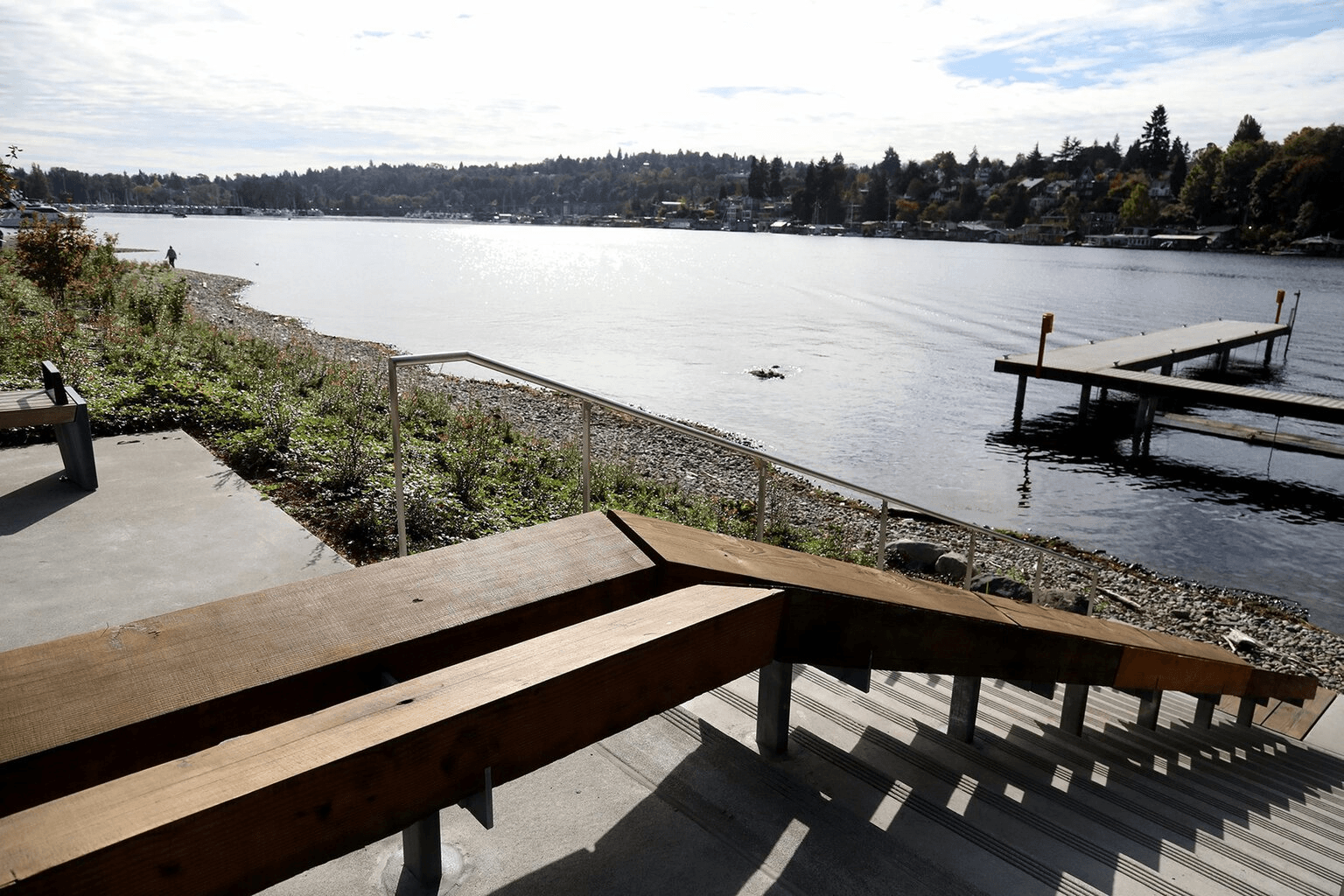

connect with us
Austin X. Huang - featured in GeoStrata of Geo Institute of ASCE April/May 2022 Issue
Look Who's a D.GE Austin X. Huang, Ph.D., P.E., L.G., D.GE, F.ASCE

Austin Huang is a principal with Merit Engineering, Inc. in Seattle, Wash. With expertise and extensive research and consulting experience in geotechnical and geological engineering, he’s responsible for geotechnical and hydrogeology investigations, and design of foundations, soil and rock slopes, retaining walls, roadways, and underground structures. During his 30-year professional career, Huang has authored nearly 800 consulting engineering reports for projects located in western Washington State, California, Oregon, and Arizona.
He is a co-inventor of the patented Buoyancy Compensated Erosion Control Module for USDA’s NRCS LA-16 Non-rock Alternatives for Louisiana Shoreline Protection. The modules feature an EPS foam core that’s fully encased in concrete. When placed side-by-side, the modules form a continuous unit that runs parallel to shorelines to prevent wind and wave action from reaching and eroding shorelines.
Among his 17 publications, Huang has authored papers on topics related to bearing capacity of rock-socketed drilled shafts, a general poro-elastic model for in-situ stress measurements by hydraulic fracturing, and the analysis and design of remedial measures for a failed 60-ft-high slope along the Pacific coast shoreline.
Huang was recognized as the 2018 Engineer of the Year for ASCE Region 8 and the American Council of Engineering Companies’ Washington State Gold Award in 2004 for special contributions to civil engineering. He earned both a master’s and a doctorate degree in rock mechanics from the University of Wisconsin- Madison.
What class did you enjoy the most while in school?
Mathematics!
What was your favorite project?
USDA NRCS LA-16 non-rock alternatives for Louisiana shoreline protection. This work began by reviewing previous research work by others. Our proposal was selected from 17 submittals for final design, construction, and three years of field testing of 500 ft of the protection system. Our design was ranked the best result among five selected systems, and our design received a U.S. patent.
What is your favorite song and artist?
"Lady in Red" by Chris de Burgh.
What is your favorite movie or television show?
The James Bond 007 series.
What are some of your personal hobbies and interests?
In my leisure time, I love to compose music for symphony orchestra performance and promote diversified culture and cultural exchange.
Where did you spend most of your childhood, and what was it like for you growing up there?
I grew up in a rural, beautiful countryside area in northeast China. I’ll never forget the happiness and enjoyable experience I had there during one of my teenage years when I was hanging out with the boys from the adjacent farm. We rode cows every day in the morning and took a herd of cows to the pastures on the mountain. While the cows were chewing the grasses, we explored the wild fields for birds and fruits.
When did you realize that you wanted to study civil engineering, and what were the key factors in your decision to become a civil engineer?
I was admitted to university through the first national exam after the Cultural Revolution in China. I wanted to study math, but was selected by the mining department. I then just followed the force and began loving soil and rock mechanics.
How do you feel about the state of civil engineering and the profession as it is today?
While human beings can do a lot, we still have a lot of challenges ahead. And as geotechnical engineers, we need to have broad knowledge in civil engineering, geology, and soil/rock mechanics. In my opinion, we need geotechnical engineers with integrated knowledge in civil design, surveying, geology (especially structural geology and hydrology), as well as laboratory testing. I’ve observed that some geotechnical engineers do not have rock mechanics knowledge. I’ve also noticed in some federal government projects that geotechnical engineering services have become commoditized via construction bid contracts.
What are the biggest challenges on the horizon for the profession?
Geotechnical engineers seem to face ever-increasing liability exposure that takes a lot of time and energy.
Do you have a message about specialty certification that you’d like to share with other professional engineers?
Specialty certification is important because it demonstrates the need our profession has for additional education and special knowledge. Certification encourages more knowledgeable and experienced engineers to take the lead in the geotechnical specialty field of civil engineering.
Was the effort to get the D.GE worth it?
Yes. Geotechnical engineering is a specialty and unique field in civil engineering because it requires broad and in-depth knowledge and experience in civil and environmental engineering, geology, hydrology, and soil/rock mechanics. Most of these fields are beyond bachelor’s degree curriculums and require an advanced degree in graduate school. I’m thrilled to see the AGP Board has been promoting the board-certified Diplomate in the civil engineering industry, which has gained many more professional engineers’ attention and recognition of the benefits of D.GE board certification.
For the complete article, please visit: geoprofessionals.org.
Link to Original Publishing Article:
https://www.readgeo.com/geostrata/april_may_2022/MobilePagedArticle.action?articleId=1779867#articleId1779867


